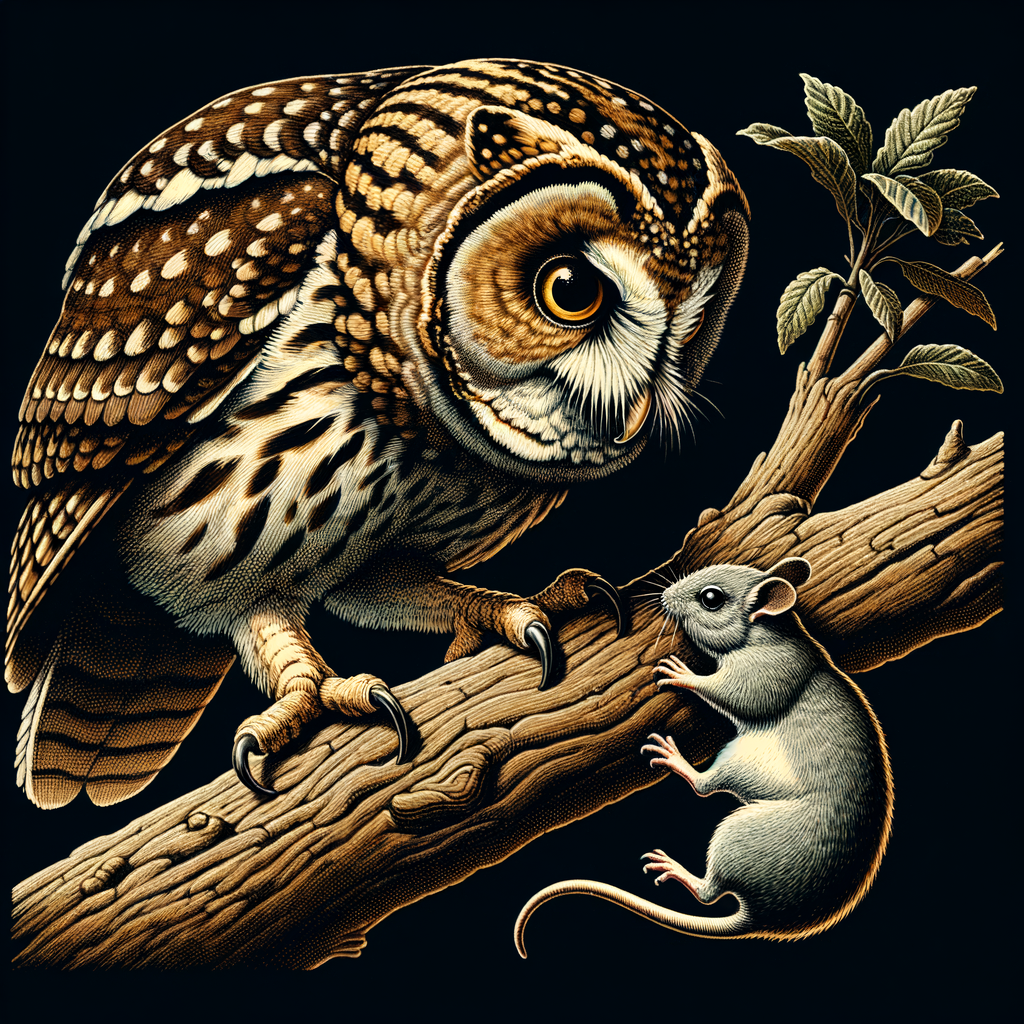
Introduction to Owl Sanctuaries
Welcome to our exploration of owl sanctuaries. These special places play a vital role in the protection and conservation of owls, one of nature’s most fascinating bird species. Let’s dive in and learn more about what owl sanctuaries are and why they are so important.
- Definition of Owl Sanctuaries
- Importance of Bird Sanctuaries
An owl sanctuary is a dedicated place where owls are protected and cared for. These sanctuaries provide a safe haven for owls that have been injured, orphaned, or are unable to survive in the wild for any reason. The primary goal of an owl sanctuary is to rehabilitate these birds and, if possible, release them back into their natural habitat. However, if an owl cannot survive on its own, the sanctuary becomes its permanent home.
Bird sanctuaries, including owl sanctuaries, are crucial for many reasons. They play a significant role in the conservation of bird species, many of which are endangered or at risk. Sanctuaries provide these birds with a safe environment where they can live and breed without the threats they face in the wild, such as habitat loss, pollution, and predation. They also serve as educational centers, where people can learn about birds and the importance of conservation. By visiting a bird sanctuary, we can all contribute to the protection and preservation of these beautiful creatures.
In the following sections, we will delve deeper into the role of owl sanctuaries in bird conservation. We will explore how these sanctuaries operate, the challenges they face, and how we can support their crucial work. Stay tuned!
The Role of Owl Sanctuaries in Bird Conservation
Owl sanctuaries play a crucial role in bird conservation. They serve as safe havens for birds, providing them with a natural habitat and protection from predators. Let’s delve into these roles in more detail.
Safe Havens for Birds
Owl sanctuaries are essentially safe havens for birds. They offer two main benefits:
- Providing a natural habitat: Sanctuaries replicate the natural environment of owls, allowing them to live as they would in the wild. They have trees, ponds, and other natural elements that owls need to thrive. For instance, the Barn Owl Sanctuary in the United Kingdom has a wide variety of trees and plants that mimic the natural habitat of barn owls. This helps the owls feel at home and promotes their natural behavior.
- Protection from predators: In the wild, owls face threats from larger birds and other predators. In sanctuaries, they are safe from such threats. The sanctuaries are designed to keep predators out, ensuring the safety of the owls. For example, the Owl Rescue Center in South Africa has high fences and round-the-clock surveillance to protect the owls from predators.
In conclusion, owl sanctuaries play a significant role in bird conservation by providing a safe and natural habitat for owls. They protect these magnificent creatures from predators and help them live as they would in the wild. This not only benefits the owls but also contributes to the overall health of our ecosystems.
Wildlife Protection
- Preventing illegal hunting: Owl sanctuaries play a crucial role in preventing illegal hunting. They provide a safe haven for these majestic creatures, ensuring they are protected from harm.
- Conservation of species: Sanctuaries are pivotal in the conservation of owl species. They help maintain the population of different owl species, some of which are endangered.
- Emergency care for injured birds: Injured birds often find a second chance at life in owl sanctuaries. These facilities are equipped with the necessary resources to provide emergency care to injured birds.
- Rehabilitation of Injured Owls: Owl sanctuaries also focus on the rehabilitation of injured owls. They provide the necessary care and treatment to help these birds recover and eventually return to their natural habitats.
- Providing a safe environment for recovery: A safe and nurturing environment is essential for the recovery of injured owls. Sanctuaries provide such an environment, aiding in the birds’ healing process.
- Monitoring health and wellbeing: Regular health checks and monitoring are part of the routine in owl sanctuaries. This ensures the wellbeing of the birds and helps identify any potential health issues early.
- Maintaining biodiversity: By protecting and conserving owl species, sanctuaries contribute significantly to maintaining biodiversity. This is crucial for a balanced ecosystem.
- Contributing to ecosystem health: Owls play a vital role in the ecosystem by controlling the population of rodents and other pests. By protecting owls, sanctuaries indirectly contribute to the health of the ecosystem.
- Educational opportunities: Owl sanctuaries provide excellent educational opportunities. They offer insights into the life of owls, their role in the ecosystem, and the importance of their conservation.
- Promoting mental health through nature connection: Spending time in nature, such as visiting an owl sanctuary, can have positive effects on mental health. It provides a sense of peace and connection with the natural world.
- Background and mission: Owl sanctuaries are often founded with the mission to protect and conserve owl species. They are driven by the belief in the intrinsic value of all life and the importance of biodiversity.
- Success stories: There are countless success stories of injured owls being nursed back to health and released into the wild. These stories serve as a testament to the critical work done by owl sanctuaries.
- Challenges faced and overcome: Running an owl sanctuary is not without its challenges. From funding issues to dealing with injured and sick birds, these sanctuaries have overcome numerous obstacles to continue their important work.
- Impact on local wildlife: Owl sanctuaries have a positive impact on local wildlife. They help maintain the balance of the ecosystem by ensuring the survival of owl species.
- The ongoing need for sanctuaries: Despite the successes, there is an ongoing need for more owl sanctuaries. The threats to owls and other wildlife continue to increase, making the role of sanctuaries more important than ever.
- How individuals can support bird conservation: Individuals can support bird conservation in various ways. From donating to sanctuaries to volunteering their time, every effort counts in the fight to protect and conserve our feathered friends.





